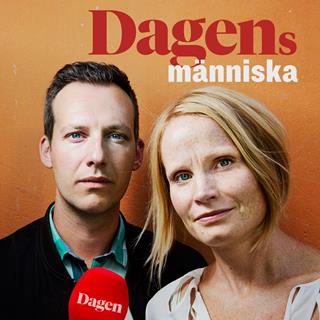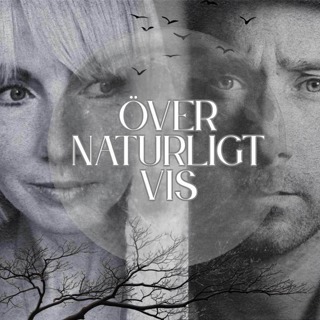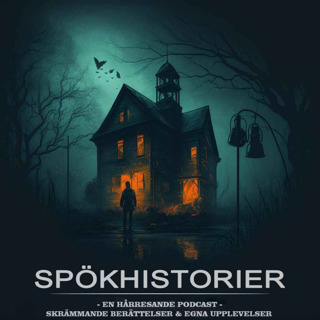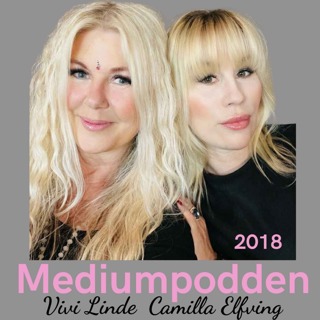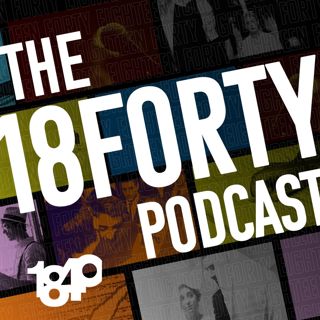
Biblical Criticism Conclusion
As we confront the questions that Biblical criticism has presented, we must ask ourselves how we can keep that transcendent, atemporal view of the Torah. Perhaps considering the seemingly temporal idiosyncrasies of the Torah can actually strengthen our appreciation of its timelessness. For more, visit https://18Forty.org/bible.Become a supporter of this podcast: https://www.spreaker.com/podcast/18forty-podcast--4344730/support.
17 Aug 20208min

Joshua Berman: What Should We Believe?
In this episode of the 18Forty Podcast, David sits down with Joshua Berman, a professor of Bible at Bar-Ilan University, to talk about the relationship between Orthodox Judaism and Biblical criticism. Many Orthodox educators avoid dealing with Biblical criticism, leaving their students feeling that they’ve been duped. Religious Bible critics are a minority in the field, giving some the impression that the questions raised cannot be adequately addressed. Though Joshua grew up with a strong internally-driven sense of faith, he too has been struck by some of these questions when his colleagues have pointed them out.-Are there strong questions to be asked on the Orthodox view of the Bible?-Are there scholars who feel they have answers that can adequately quell the doubts raised by these questions?-Is this approach falsifiable?-And is it merely apologetics, or is this scholarship just as legitimate, if not more, than the opposing scholarship?Tune in to hear Joshua reflect on his journey as a Jew and an academic, as well as the state of Biblical scholarship. For more, visit https://18Forty.org/bible#berman.Become a supporter of this podcast: https://www.spreaker.com/podcast/18forty-podcast--4344730/support.
3 Aug 20201h 1min

Biblical Criticism Intro
David explains how, despite his initial apprehensiveness towards the topic, he has come to appreciate the different approaches to Biblical criticism offered by this month’s three guests: Joshua Berman, Gil Student, and Sara Susswein Tesler. For more, visit https://18Forty.org/bible.Become a supporter of this podcast: https://www.spreaker.com/podcast/18forty-podcast--4344730/support.
26 Juli 202013min

Daniel Feldman: Punchlines with Boundaries and Opportunities
In this episode of the 18Forty Podcast, David sits down with Rabbi Daniel Feldman, a Rosh Yeshiva at Yeshiva University and an author to discuss the role of comedy in Jewish thought and practice. We usually think of learning Torah as something serious and of comedy as incompatible with it. It is therefore natural to assume that comedy doesn’t have value, or at least that it doesn’t have inherent value, according to the Torah. The Torah even prohibits something called “leitzanus,” which many translate loosely to mean “humor.” Is there any value in humor beyond helping us cope with life’s hardships? What is the prohibited act of “leitzanus,” and how does that tie into the Torah’s view on humor in general? Are there any examples of humor in the Torah? Can we make jokes about the Torah and other important topics? And if we can, how far is too far? Tune in as Rabbi Daniel Feldmand discusses the sometimes surprising answers to these questions.Become a supporter of this podcast: https://www.spreaker.com/podcast/18forty-podcast--4344730/support.
19 Juli 202033min

Comedy Conclusion
As we live through the ups and downs of life, laughter begins to play an invaluable role in our mental well-being. Perhaps comedy can provide a helpful lens through which to view the sometimes stressful responsibilities of our life.Become a supporter of this podcast: https://www.spreaker.com/podcast/18forty-podcast--4344730/support.
19 Juli 20207min

Leah Forster: Of Comedy and Community
In this episode of the 18Forty Podcast, David sits down with Leah Forster, an ex-Hasidic comedian to talk about how her journey has affected her comedy. Leah found comedy at a young age and pioneered comedy by women for women in the ultra-Orthodox world. She realized that the ultra-Orthodox life she grew up with caused a deep conflict within herself and she left to remain true to her authentic self. She was later at the center of a controversy where two bookings at kosher restaurants were cancelled, with their kashrus organizations threatening to pull their certifications because she was lesbian. How has Leah kept her comedy positive and free of bitterness and cynicism? How has she stayed positive in her personal life when dealing with these hardships? What lessons has she learned from them? And does she see herself as a role model to religious people who are realizing that they don’t fit within their community? Tune in as Leah reflects on her journey in between demonstrations of her many comedic personas.Become a supporter of this podcast: https://www.spreaker.com/podcast/18forty-podcast--4344730/support.
12 Juli 202044min

Gary Gulman: This Impossible Life
This episode is sponsored by Louis and Debby FlancbaumIn this episode of the 18Forty Podcast, David sits down with Gary Gulman, a world-famous comedian with comedy specials on Netflix and HBO, to talk about the relationship between comedy and the art of living.Gary grew up with a close relationship to God and was deeply depressed as a child. He thought he would be happy if he mastered something, so he resolved to become a good basketball player, then a successful accountant. But a change in perspective led him to try comedy, and he has since felt much more fulfilled. How does one construct meaning in their life? Does comedy help construct meaning or have any other value? Can one feel fulfilled if they feel average, or does one have to excel to be happy? And how does Gary’s Jewish identity play into his life philosophy? Tune in to hear Gary reflect on his comedic journey and the role it has played in finding meaning in his life.Become a supporter of this podcast: https://www.spreaker.com/podcast/18forty-podcast--4344730/support.
5 Juli 202056min

Comedy Intro
David explains how comedy and humor can uncover a mystical oneness that allows us to construct meaning and community from mundane occurrences.Become a supporter of this podcast: https://www.spreaker.com/podcast/18forty-podcast--4344730/support.
28 Juni 20209min











